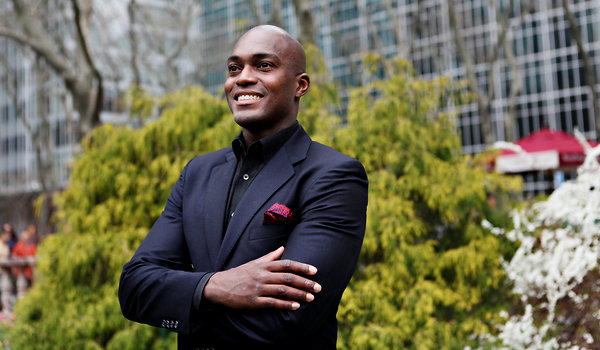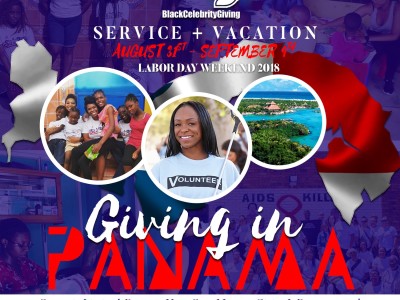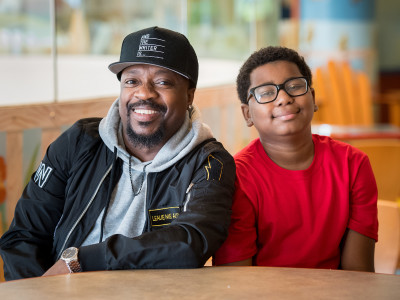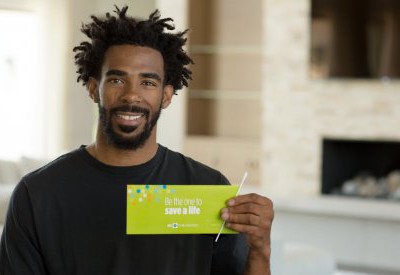A month after his 2009 graduation from Yale Law School, Seun Adebiyi learned he had not one but two lethal blood cancers and began an odyssey to find a bone-marrow donor. Mr. Adebiyi, 28, who came to this country from Nigeria as a child, made appeals through Yale, on radio stations, in a YouTube video and even on a trip to Nigeria to ask law students to volunteer.
Millions of Nigerians have blood cancers like leukemia or lymphoma, and about 4,000 black Americans die annually of them. Less than 20 percent of black Americans now find the perfect donor matches that could save their lives, while more than 70 percent of whites do. Without a registry and cord-blood bank, no Nigerians do.
“This is a slam-dunk, from my point of view,” Mr. Adebiyi said. “The U.S. registries are trying to figure out how to increase the population of minority donors; this is a solution they should be interested in.”
Becoming a donor is relatively simple nowadays; only a cheek swab is needed to test for a match. Donating rarely requires the painful hip punctures that used to be routine. Instead, an intravenous blood line runs through a cell separator after the donor takes drugs to push the stem cells into the bloodstream. The process is no more burdensome than dialysis, experts say.
But for African-Americans like Mr. Adebiyi, finding matches is particularly difficult. Blacks are less likely to register as donors; while blacks are 12.6 percent of the population, only 8 percent of registered donors are black.
“It’s lack of education about it, and mistrust of the medical system after scandals like Tuskegee,” said Shauna Melius, co-founder of Preserve Our Legacy, citing the Tuskegee, Ala., experiment in which government doctors recruited black farmers for research and let those with syphilis go untreated for decades. Her organization recruits donors at Harlem Hospital and through drives featuring black celebrities.
“Plus,” she added, “people are skeptical because you’re collecting DNA.”
Complicating the problem, blacks are more genetically diverse than whites. Anatomically modern Homo sapiens existed in Africa for 200,000 years before migrating north to Europe a little over 40,000 years ago, so all Europeans descend from the shallower end of the gene pool.
Although no expert would predict exactly how many American lives could be saved, because there are so many variables, several suggested that dozens of cancer patients would benefit — and some of the 1,000 Americans a year who face life-threatening sickle-cell disease could potentially be cured as well. “It could be useful to everybody to have a lot more people lined up as donors,” said Dr. Harold Varmus, director of the National Cancer Institute. “And it could help recruit minority Americans if you could point out that folks in Africa are signing up too.”
Dr. Willis Navarro, medical director for the National Marrow Donor Program, called Mr. Adebiyi’s plan “amazing.” Susan L. Solomon, chief executive of the New York Stem Cell Foundation, said it was “a really big deal.”
Because most African-Americans are descended from slaves from West Africa, a donor pool there will help, said Dr. Pablo Rubinstein, co-founder of the national cord-blood program at the New York Blood Center.
Nigeria has 154 million people and more than 400 ethnic groups.
It will particularly help those with more African genes. Most black Americans have some white ancestors and, on average, 35 percent European genes, but individuals vary widely.
Umbilical cord blood is even more useful than bone marrow, because its stem cells are “more tolerant,” Dr. Rubinstein said. They have survived fewer bacterial and viral assaults and are less likely to counterattack with graft versus host disease.
Before cord blood became common in the 1990s, blacks almost never found matches. “In 1990, we only found six matches for African-Americans, and all of them had typical European genes,” Dr. Rubinstein said.
Mr. Adebiyi found out he had both lympholblastic lymphoma and stem cell leukemia when he was working at Goldman Sachs. He had no full siblings to donate marrow and, as his search for a matching donor in the United States led nowhere, he said, “I realized that my only chance was within my own ethnic group in Nigeria.” He flew there and spoke to 300 law students. Most agreed to have their cheeks swabbed, “and I carried the saliva back with me on the plane,” he said.
But before the testing was done, the cord match turned up.
Back in 2003, he missed making Nigeria’s 2004 Olympic swim team by 0.12 seconds. Now, while on temporary disability retirement from Goldman because of the neurological effects of his chemotherapy, he is trying for the 2014 Winter Games in the skeleton luge, which flings competitors headfirst down an icy track. He has no Nigerian rivals, but he still has to make minimum qualifying times to compete. (And, yes, he said, one of his coaches did train Jamaica’s famous bobsled team.)






